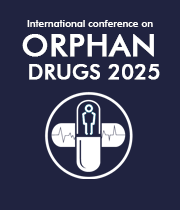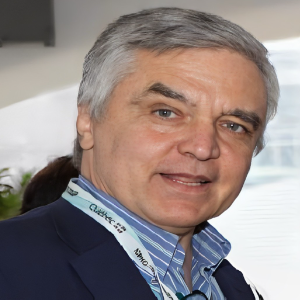Title : Personalized and Precision Medicine (PPM) though the view of reproductive healthcare, pediatric services and natural family planning: an option for clinicians and caregivers realize the potential of genomics-informed care to secure the individualized human biosafety
Abstract:
A new systems approach to diseased states and wellness result in a new branch in the healthcare services, namely, personalized and precision medicine (PPM). PPM, genomics and AI are those of the most rapidly emerging areas of biomedical research and the most promising technologies for improving health care and health outcomes. Examples include the use of AI for improved DNA sequencing and SNP analysis to target specific cell and tissue types, biosensors for specific molecules in vivo, and point-of-care molecular diagnostic devices enabled by genomics- and AI tools.
The enormous development of genomics research has raised great expectations concerning its impact on PPM aiming to customize medical practice with a focus on the individual, based on the use of genetic tests, identification of genomic biomarkers, and development of targeted drugs. Personal genomics is an area of genomics focusing specifically on the sequencing and analysis of one person’s genome, and then giving them their genomic information.
The emphasis on individuals and genomic knowledge needs to be counter-balanced with the subjects’ understanding in their sociocultural, political, and economic contexts and with the equivalent investment in actions on the social determinants of health. The above-mentioned areas being an integral part of PPM is really an interdisciplinary research field that results from the application of the innovative genomic and AI tools to medicine and has the potential to significantly improve some canonical treatments, prevention, prophylaxis and rehabilitation. Specifically, in the field of PPM, it is expected to have a great impact in the near future due to its multiple advantages, namely its versatility to adapt a drug to cohorts of patients and/or persons-at-risk. For instance, multimodal genomic and AI-driven approaches may indeed become a key driver in harmonizing the needs of the various stakeholders by allowing cost-effective delivery and monitoring of drug efficiency and safety, and close-meshed high-quality data collection.
Personal genomics can be used to advise couples wanting to have children. By knowing the risk of passing on a genetic disorder to their child, they may decide to investigate other ways of having a baby, such as in vitro fertilisation (IVF). Meanwhile, personalized genomic medicine and surgery (PGMS) represents a new approach to health care that customizes patients’ medical treatment according to their own genetic information. This new approach is the result of increased knowledge of the human genome and ways this information can be applied by physicians in the medical and surgical management of their patients.
Currently, personal genome sequencing and testing is a relatively niche market with a number of services available over the internet. However, the commercialization of personal genome sequencing is set to grow and, in future, it could become a routine part of clinical practice.
Enhanced understanding of the role of genetics in human disease, coupled with rapid advancement in sequencing technology, is transforming the speed of diagnosis for patients and providing increasing opportunities to tailor management. Physicians will be signposted to key issues that will allow the successful implementation of genomics for rare disease diagnosis and cancer management.
By virtue of treating each person's condition as unique, personal genomics and PPM require health professionals to understand the nature of the data, its health implications, and its limitations. But the public understanding of the scope and impact of genetic variation has not kept up with the pace of the science or technology. We examine several venues for information, including print and online guides for both lay and health-oriented audiences, and summarize selected resources in multiple formats. We also stress that implementation of PPM thus requires a lot before the current model “physician-patient” could be gradually displaced by a new model “medical advisor-healthy person-at-risk”. This is the reason for developing global scientific, clinical, social, and educational projects in the area of PPM to elicit the content of the new branch. In short, PPM will transform the way doctors practice and will shake up the entire pharmaceutical value chain.
Audience Takeaway:
- The Audience will be able to learn new PPM-guided genomics principles, philosophy and technologies from the contents of the speech.
- To create the new jobs or occupy the existing positions for PPM-guided genomics-related design projects at the schools and companies.
- This research could be implemented for teaching and training.
- The speech will provide a set of practical solutions to surmount the problems in PPM-guided genomic diagnostic, predictive or prognostic issues in practice.
- The speech will provide the key issues to improve the accuracy of design-driven translational approach to the implementation of PPM-guided translational genomics into bioindustry.


